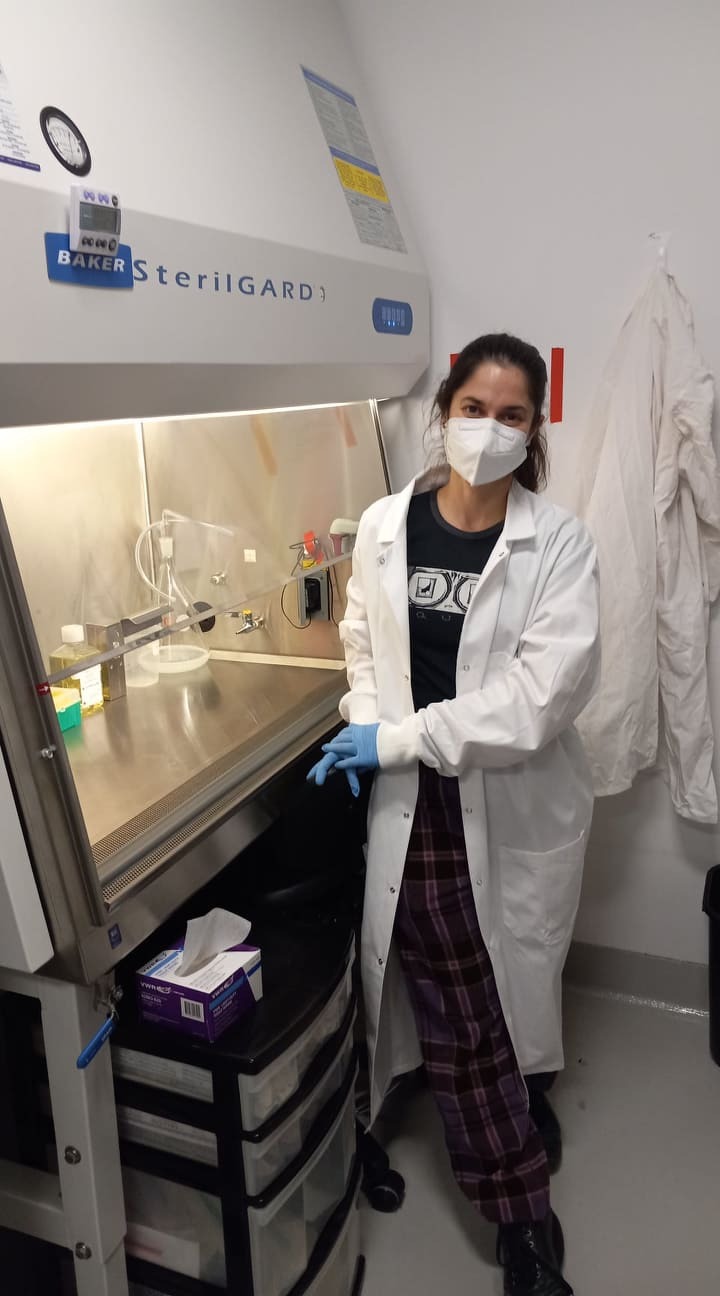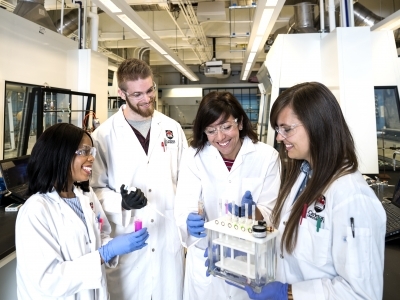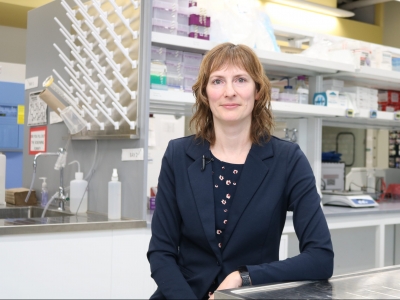Noa Gang a PhD candidate in Biology, is examining the impact of man-made environmental toxins on beta cells in the pancreas. Gang works in Jenny Bruin’s Diabetes and Toxicology lab where a team is looking at the impact of persistent organic pollutants (POPs) on human health.
“These chemicals are being phased out,” explains Gang. “However due to their resistance to degradation, POPs can be found all over the globe, and in most individuals,” “I study the most toxic of these chemicals: TCDD (2,3,7,8-tetrachlorodibenzo-p-dioxin).”
Gang is personally fascinated by the impact the environment can have on human health and/or behaviour.
“My research enables me to study how environmental exposures can impact the health and function of a cell, and how those changes can in turn direct energy metabolism and overall health of the full organism,” shares Gang.

Gang notes that the different impact of POPs is based on the type of exposure and is further complicated by individual variations in the population. “Sex, obesity, time of life when exposure occurred, and any underlying health issues or genetic predispositions for illness make a difference in outcome of exposure.”
“Studying all these nuances are beyond the scope of my PhD project. However, my research may help illuminate the synergistic effect of some of these complexities.”
Gang shares: “Soon after moving to Ottawa, I came across the exciting research conducted in the Bruin lab and reached out to Dr. Jenny Bruin. My lab is full of like-minded individuals who are gifted in their research abilities, incredibly supportive and love to laugh.”
Dr. Jenny Bruin, who last year won a Graduate Faculty Mentoring Award, has also been supervising Gang throughout her research.
“I am very lucky to work with a supervisor who genuinely loves research and discovery. I feel that with Jenny’s support and passion for research, I have been able to progress rapidly in my work. I always have the support I need when troubleshooting or planning a project.”
Gang has won an NSERC CGS-D award, and recently returned from a training trip to Vancouver at the BC Children’s Hospital Research Institute where she learned from a leading expert, Dr. Francis Lynn, how to differentiate human embryonic stem cells into beta-like cells. “Bringing this technique back to the Bruin lab allows me to examine how toxin exposure can impact pancreatic beta-cells during development.”
It’s been a busy year for Gang as, this past year, she also had a paper accepted for publication.
Last year, Gang took on the role of establishing and leading a trainee committee for the new Canadian Islet Research and Training Network. Through that role, she organized numerous initiatives, including a seminar series, a journal club, a career development seminar, and more. Gang has also been a graduate mentor for the CHAIM Centre One Health Challenge.
Going forward, Gang hopes to continue to pursue her curiosity of the sex-specific effects of TCDD exposure on beta cells.
“We have already shown that there are sex-specific effects in mice exposed to TCDD, but we have yet to examine whether sex-specific effects can be seen in culture at the cellular level.”
–The above story was revised from an original story by Taia Goguen-Garner.
Monday, February 7, 2022 in Research
Share: Twitter, Facebook



